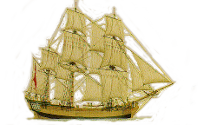Trimble Mills (aka Felton Mills)
Trimble, or Felton Mills.— In 1734, William Trimble appeared at Friends' Meeting at Concord with Ann Palmer, and there they declared their intention of marriage. Soon after their marriage, William Trimble bought one hundred acres of land, the half of the two hundred acres patented to Thomas King, July 22, 1684. The part purchased adjoined the Nicholas Newlin Mill land, to the south of the latter. In 1742, William and Ann Trimble built a stone house, which is still standing, and now owned by Dr. Joseph Trimble. William Trimble, the younger, had on this estate a saw-mill in 1782, and prior to 1799 had erected a paper-mill, which was operated as such by him until 1813, when it was changed to a cotton-factory at the instance of John D. Carter, an Englishman, who had just previous to that time immigrated to Pennsylvania. This factory was four stories in height, sixty by thirty-four feet, and was conducted by Carter until 1826, when he purchased the Knowlton Mills and removed there. The Trimble cotton-factory at that time contained four carding-engines, ten hundred and sixty-eight spindles, and spun seven hundred and fifty pounds of cotton yarn weekly. The mills, after Carter's removal, were leased by Jacob Taylor, and later by Joseph Trimble, Charles Cheelham, Callaghan Brothers, and others. In March, 1873, the mills were destroyed by fire, and the property was sold to Gen. Kobert Patterson. The executors of the Patterson estate, on July 1, 1884, sold the site of these mills to George Rush, Jr., who is rebuilding the burned mills, wherein he proposes to manufacture the Rush roller skates, of which article he is the patentee. Early in this century, Samuel Trimble conducted the saw-mill in the immediate neighborhood of the Trimble paper-mill, and continued there many years.[bib]703[/bib]



